
Salzburg: The Symphony of Austria
Nestled along the banks of the Salzach River, Salzburg is a city that charms visitors with its baroque architecture, rich musical heritage, and stunning alpine scenery. Known as the birthplace of Mozart, Salzburg is a city where history and culture blend seamlessly, offering a vibrant experience for tourists. A visit to Salzburg is incomplete without exploring the UNESCO World Heritage-listed Old Town. Here, you'll find the magnificent Hohensalzburg Fortress, which provides panoramic views of the city and surrounding mountains. The narrow, cobblestone streets are lined with beautifully preserved medieval and baroque buildings, including the stunning Salzburg Cathedral and the opulent Mirabell Palace, with its meticulously landscaped gardens. Salzburg's musical legacy is celebrated throughout the city, from the annual Salzburg Festival to the numerous concerts and performances held year-round. Fans of 'The Sound of Music' will delight in visiting the film's iconic locations, such as the Mirabell Gardens, Nonnberg Abbey, and the picturesque Lake District. Beyond its historical and cultural attractions, Salzburg offers a variety of outdoor activities, including hiking, cycling, and skiing in the nearby Alps.
Local tips in Salzburg
- Purchase a Salzburg Card for free entry to many attractions and unlimited public transport.
- Visit early in the morning or late in the afternoon to avoid crowds at popular sites like Hohensalzburg Fortress.
- Try the local specialty, Salzburger Nockerl, a light and fluffy dessert.
- Wear comfortable shoes as the Old Town's streets are cobblestone and can be uneven.
- Take a day trip to the nearby Lake District for stunning scenery and outdoor activities.
Neighbourhoods in Salzburg
Salzburg: The Symphony of Austria
Nestled along the banks of the Salzach River, Salzburg is a city that charms visitors with its baroque architecture, rich musical heritage, and stunning alpine scenery. Known as the birthplace of Mozart, Salzburg is a city where history and culture blend seamlessly, offering a vibrant experience for tourists. A visit to Salzburg is incomplete without exploring the UNESCO World Heritage-listed Old Town. Here, you'll find the magnificent Hohensalzburg Fortress, which provides panoramic views of the city and surrounding mountains. The narrow, cobblestone streets are lined with beautifully preserved medieval and baroque buildings, including the stunning Salzburg Cathedral and the opulent Mirabell Palace, with its meticulously landscaped gardens. Salzburg's musical legacy is celebrated throughout the city, from the annual Salzburg Festival to the numerous concerts and performances held year-round. Fans of 'The Sound of Music' will delight in visiting the film's iconic locations, such as the Mirabell Gardens, Nonnberg Abbey, and the picturesque Lake District. Beyond its historical and cultural attractions, Salzburg offers a variety of outdoor activities, including hiking, cycling, and skiing in the nearby Alps.
When is the best time to go to Salzburg?
Iconic landmarks you can’t miss
Fortress Hohensalzburg
Explore Fortress Hohensalzburg, one of Europe's best-preserved medieval castles, offering panoramic views & a glimpse into Salzburg's rich history.
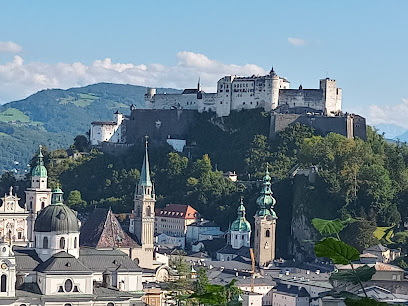
Mirabell Palace
Experience the Baroque splendor of Salzburg at Mirabell Palace & Gardens, a UNESCO World Heritage site famed for its history, architecture, and 'Sound of Music' fame.
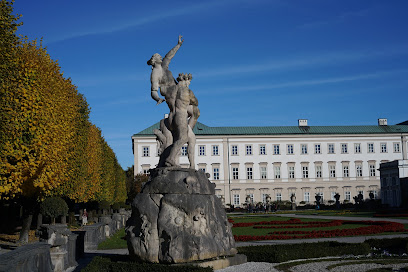
Mozart's Birthplace
Explore the early life of a musical genius at Wolfgang Amadeus Mozart's birthplace in the heart of Salzburg's historic Getreidegasse.
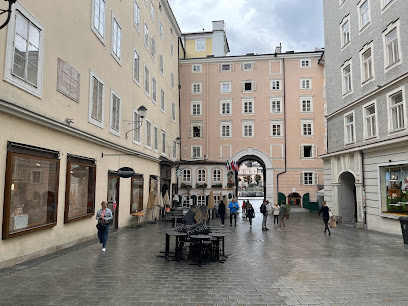
Schloss Hellbrunn
Explore the magical fountains and serene gardens of Schloss Hellbrunn, a stunning Baroque palace in Salzburg, where history meets nature.

Mozartplatz
Experience Salzburg's heart at Mozartplatz: a vibrant square honoring Mozart, surrounded by historical landmarks and rich cultural history.
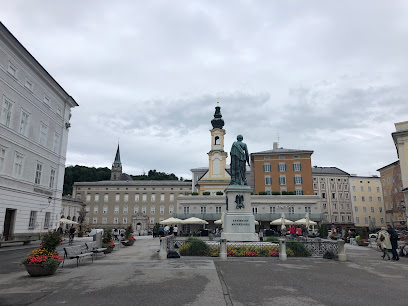
Salzburg Zoo Hellbrunn
Discover 1,500 animals from around the globe at Salzburg Zoo Hellbrunn, nestled in the scenic Hellbrunn parklands.
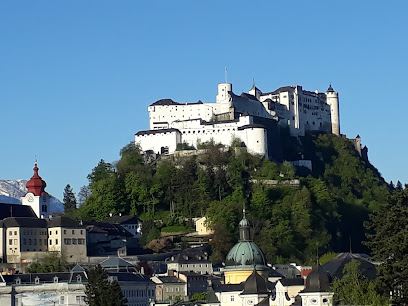
Salzburg Cathedral
Discover Salzburg Cathedral, a baroque jewel with a rich history, stunning architecture, and deep cultural significance in Salzburg's Old Town.
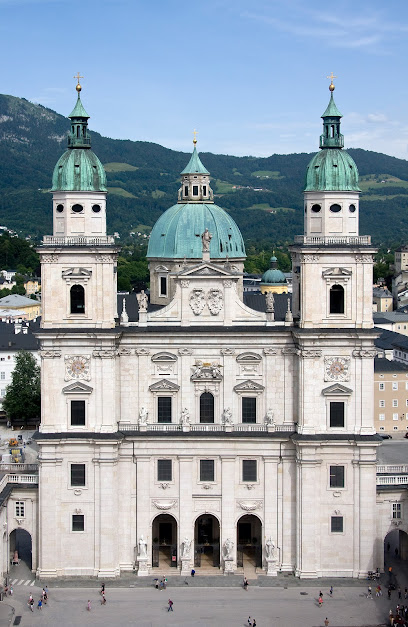
Mirabellgarten
Explore the stunning Mirabellgarten in Salzburg, a historical gem filled with vibrant flowers, fountains, and picturesque pathways that enchant every visitor.
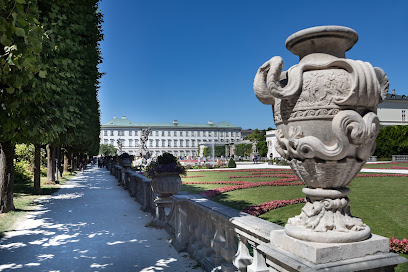
Mozart Residence
Discover the life and legacy of Mozart at his residence in Salzburg, where music history comes alive in an immersive museum experience.
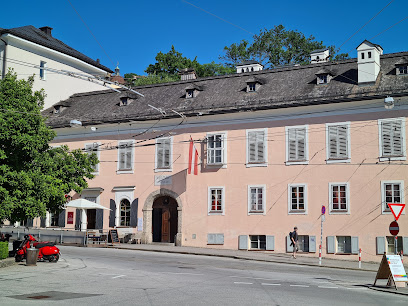
Residenzplatz
Experience Salzburg's Baroque grandeur at Residenzplatz, a historic square with stunning architecture, a monumental fountain, and vibrant events.
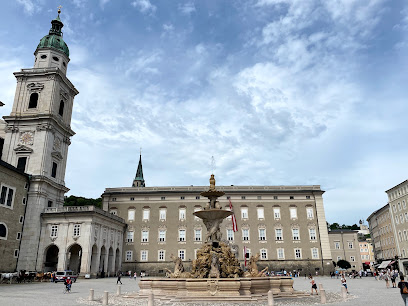
Stiegl-Brauwelt
Experience Austria's beer culture at Stiegl-Brauwelt in Salzburg: tours, tastings, and traditional cuisine await at Austria's largest private brewery.
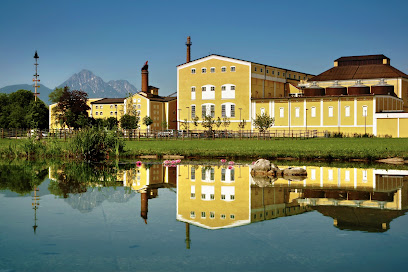
Linzer Gasse Platzl
Explore Linzer Gasse: A historic Salzburg street with charming shops, cafes, and stunning architecture in the heart of the Neustadt.
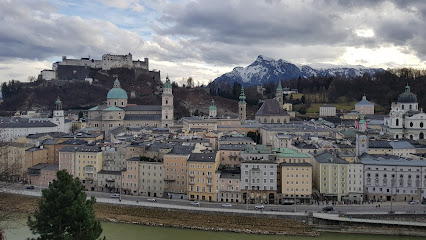
Stift Nonnberg
Explore Salzburg's oldest nunnery, Stift Nonnberg, a historic Benedictine abbey with stunning views and a 'Sound of Music' connection.
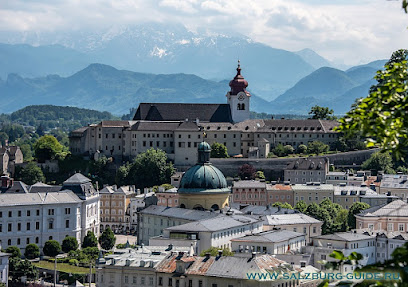
Funicular to the Fortress
Ascend to Hohensalzburg Fortress via Austria's oldest funicular for panoramic Salzburg views and a journey through history.
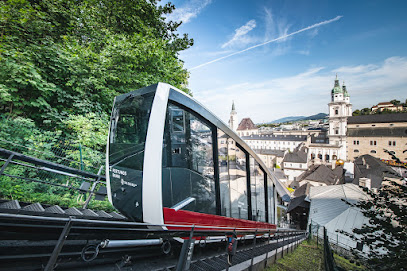
Free Walking Tour Salzburg
Uncover Salzburg's history and culture with a local guide on a free walking tour, exploring iconic landmarks and hidden gems.
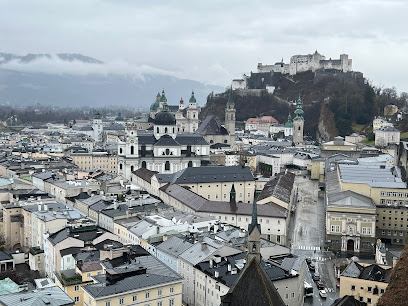
Unmissable attractions to see
Fortress Hohensalzburg
Explore Fortress Hohensalzburg, a magnificent historical landmark in Salzburg offering stunning views, rich history, and engaging exhibitions.
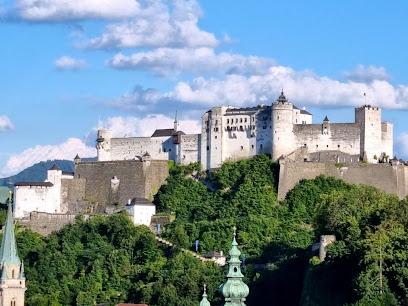
Mirabell Palace
Explore the stunning Mirabell Palace in Salzburg, a historic site featuring breathtaking gardens and rich cultural heritage.
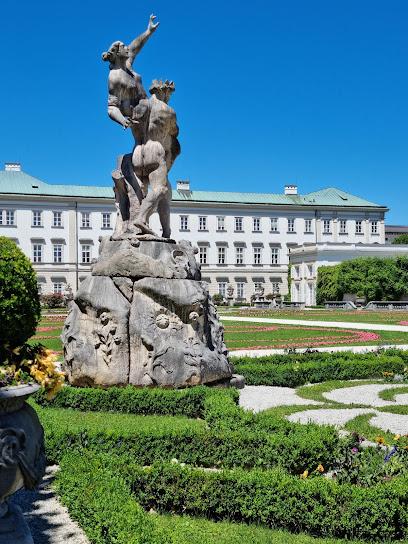
Mozart's Birthplace
Discover the birthplace of Mozart in Salzburg, a museum celebrating the life and legacy of the world-renowned composer.
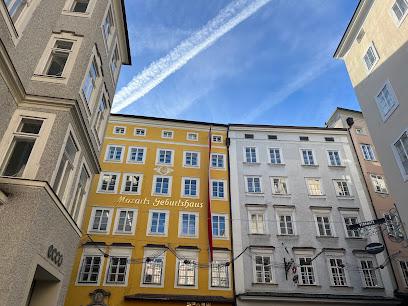
Schloss Hellbrunn
Explore the whimsical wonders of Schloss Hellbrunn, a baroque palace in Salzburg with stunning gardens and enchanting trick fountains.
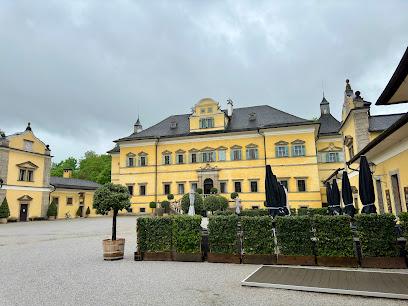
The Eagle's Nest
Visit The Eagle's Nest for breathtaking views and a rich historical experience in the Bavarian Alps, a must-see landmark near Berchtesgaden, Germany.
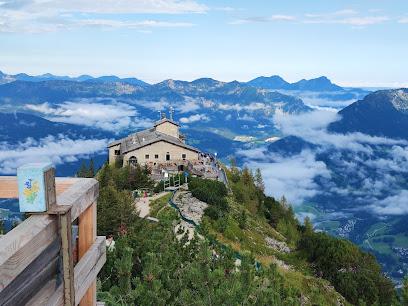
Red Bull Hangar-7
Discover the artistic blend of aviation, contemporary art, and fine dining at Red Bull Hangar-7 in Salzburg, a unique destination for all travelers.
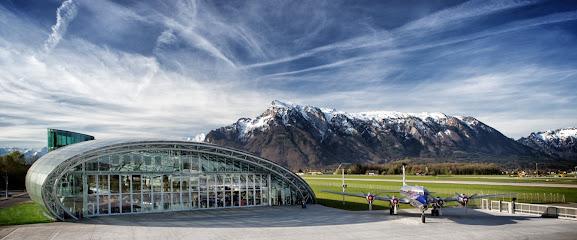
Neues Schloss Herrenchiemsee
Experience the grandeur of Neues Schloss Herrenchiemsee, a magnificent castle inspired by Versailles, set on the idyllic Herreninsel island.
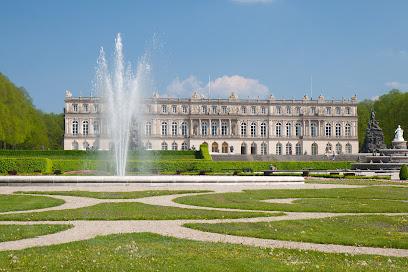
Mozartplatz
Discover the enchanting Mozartplatz in Salzburg, a vibrant square celebrating the legacy of Mozart amidst stunning Baroque architecture.
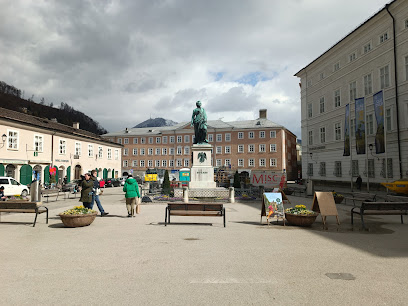
Salzburg Zoo Hellbrunn
Experience the beauty of wildlife at Salzburg Zoo Hellbrunn, a stunning animal park perfect for families and nature lovers alike.
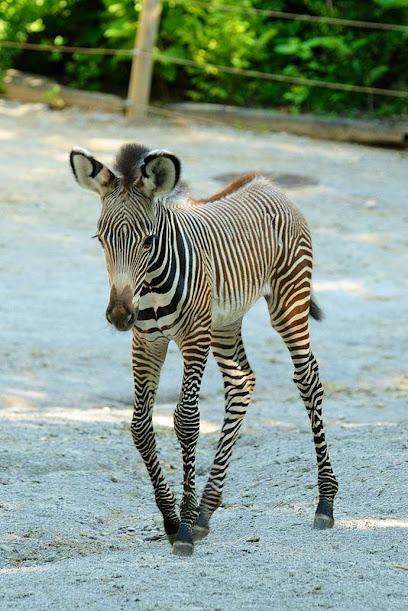
Burg Hohenwerfen
Discover the enchanting Burg Hohenwerfen, a medieval castle in the Austrian Alps, rich in history and stunning views, perfect for every explorer.
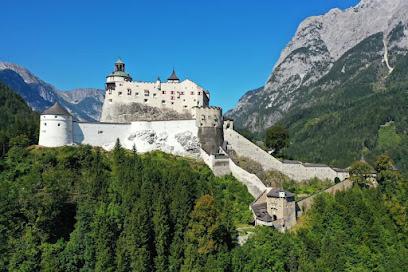
Salzburg Cathedral
Discover the architectural brilliance and historical significance of Salzburg Cathedral, a must-see tourist attraction in Austria's stunning Salzburg.
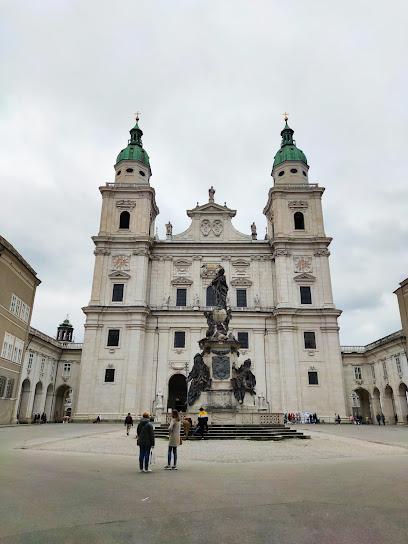
Eisriesenwelt
Explore the breathtaking Eisriesenwelt, the world's largest ice cave, where stunning ice formations meet the majestic beauty of the Austrian Alps.
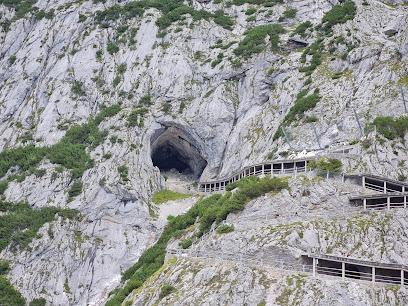
Mirabellgarten
Experience the enchanting beauty and rich history of Mirabellgarten, Salzburg's hidden gem of floral artistry and serenity.
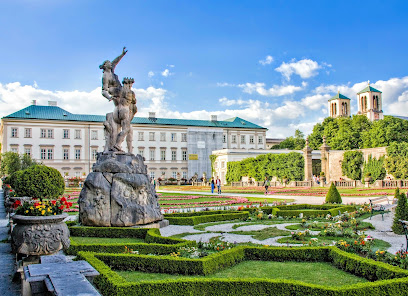
Pilgrimage Church of St. Bartholomew
Discover the enchanting Pilgrimage Church of St. Bartholomew, a striking Bavarian landmark nestled by the breathtaking Königssee.
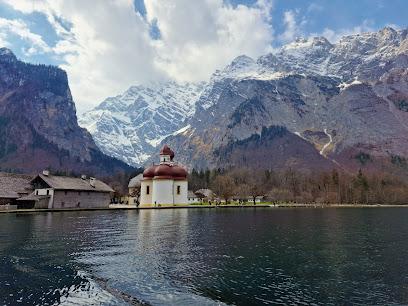
Burghausen Castle
Discover the allure of Burghausen Castle, a magnificent medieval fortress with stunning views, rich history, and engaging museums in Burghausen, Germany.
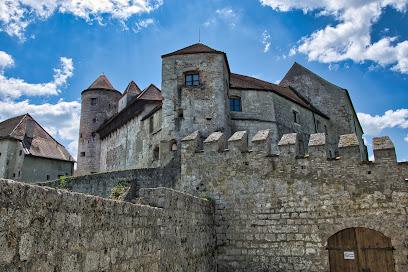
Essential places to dine
Sternbräu
Experience authentic Austrian cuisine at Sternbräu in Salzburg - where tradition meets flavor in every dish.
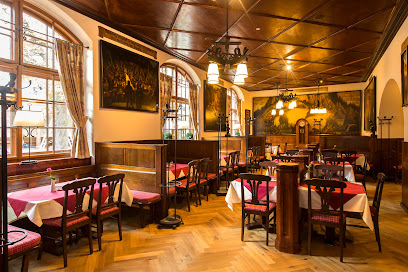
L'Osteria Salzburg
Savor authentic Italian cuisine at L'Osteria Salzburg - where every dish is a celebration of flavor amidst stunning city views.
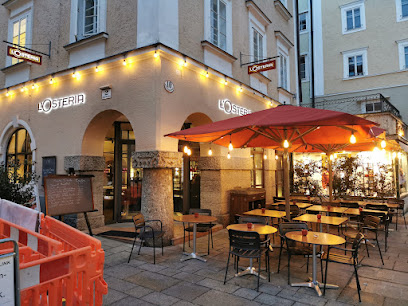
Bärenwirt
Discover the heart of Austrian cuisine at Bärenwirt in Salzburg—where tradition meets flavor in every bite.
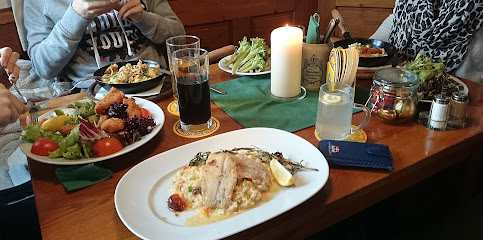
Zwettler's Wirtshaus
Discover authentic Austrian flavors at Zwettler's Wirtshaus in Salzburg - a must-visit for food lovers seeking local delicacies.
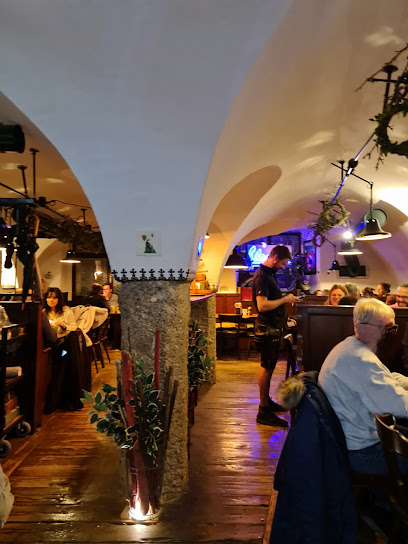
Restaurant Stiegl-Keller
Experience authentic Austrian cuisine at Restaurant Stiegl-Keller in Salzburg with stunning views and a welcoming atmosphere.
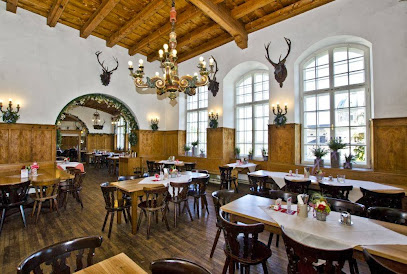
COOL MAMA Hotel Salzburg Sky Restaurant Bar GmbH
Discover exquisite dining and stunning views at COOL MAMA Hotel Salzburg Sky Restaurant Bar - where culinary excellence meets breathtaking scenery.

Zum Zirkelwirt
Discover Zum Zirkelwirt: A must-visit Austrian restaurant in Salzburg offering traditional dishes and local charm.
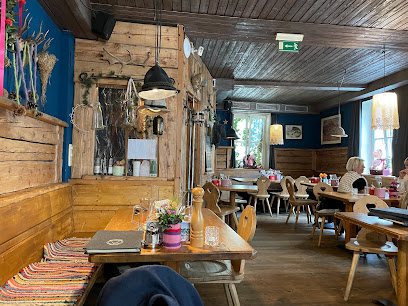
Braurestaurant IMLAUER
Discover the heart of Austrian gastronomy at Braurestaurant IMLAUER in Salzburg – where tradition meets taste.
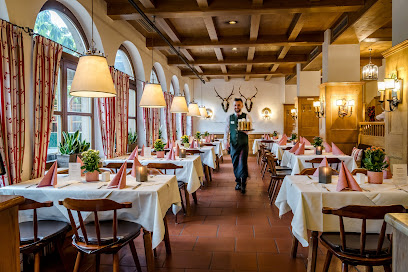
Die Weisse
Discover the flavors of Austria at Die Weisse, where traditional cuisine meets a warm and inviting atmosphere in Salzburg.
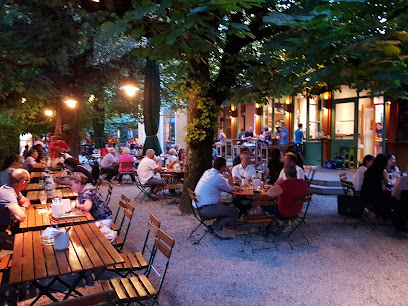
IMLAUER Sky - Bar & Restaurant in Salzburg
Discover IMLAUER Sky - A Luxurious Dining Experience Overlooking Salzburg's Breathtaking Cityscape.
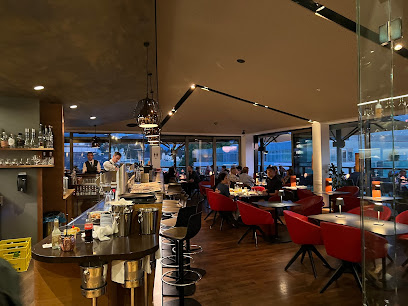
St. Peter Stiftskulinarium
Experience centuries of culinary tradition at St. Peter Stiftskulinarium in Salzburg—where history meets exquisite Austrian dining.
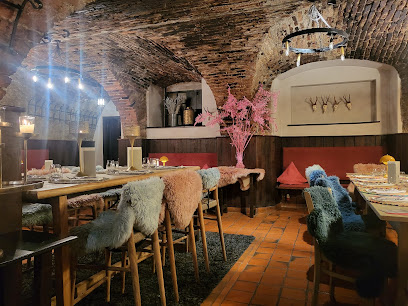
Gasthof Alter Fuchs
Experience authentic Austrian cuisine at Gasthof Alter Fuchs in Salzburg – where tradition meets taste.
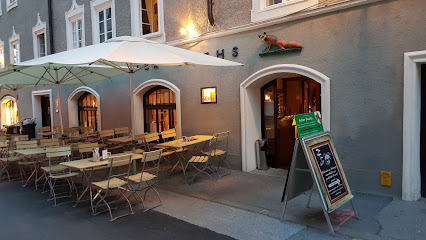
Goldene Kugel
Indulge in authentic Austrian cuisine and refreshing local brews at Goldene Kugel, Salzburg's beloved restaurant and beer hall.
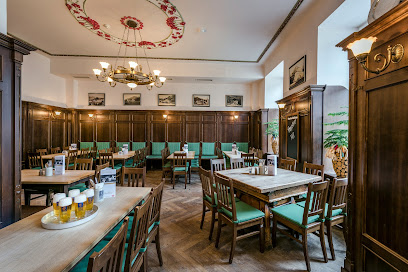
The Heart of Joy
Experience vegetarian delights at The Heart of Joy in Salzburg - where fresh ingredients meet delightful flavors.
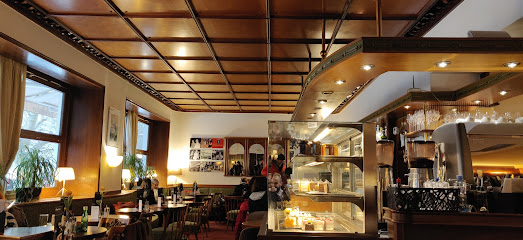
Pauli Stubm
Discover the heart of Salzburg at Pauli Stubm, where authentic Austrian cuisine meets warm hospitality in a charming inn setting.
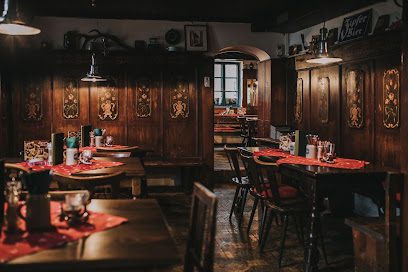
Markets, malls and hidden boutiques
EUROPARK - Salzburg
Experience the ultimate shopping adventure at Europark, Salzburg's vibrant shopping mall with diverse shops and delicious dining options.
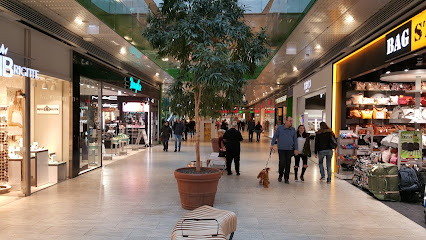
Designer Outlet Salzburg
Discover incredible deals and designer brands at the Designer Outlet Salzburg, a shopper's paradise near the stunning city of Salzburg.
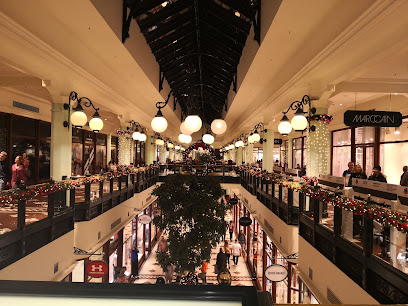
Forum 1
Explore Forum 1 in Salzburg: A vibrant shopping mall with diverse stores, delicious dining, and a welcoming atmosphere for tourists.
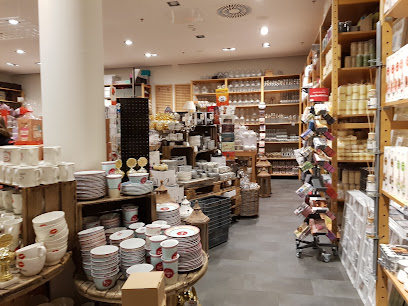
ZiB Shopping
Explore the ZiB Shopping Mall in Salzburg for an unbeatable shopping experience with affordable shops and delicious dining options.
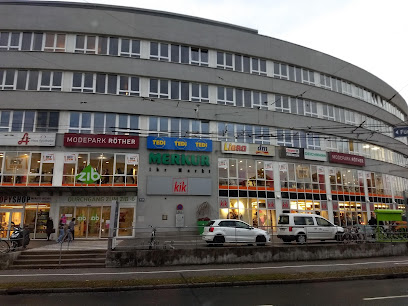
Kiesel
Discover the ultimate shopping experience at Kiesel in Salzburg, featuring a diverse range of shops, dining options, and a vibrant atmosphere.
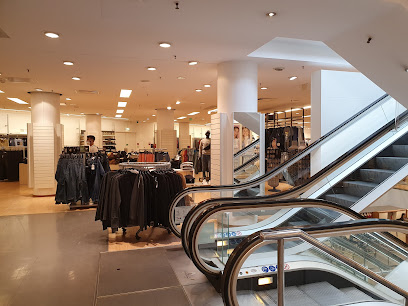
Red Bull World Salzburg
Discover the thrilling essence of sports at Red Bull World Salzburg, a unique memorabilia store celebrating the adrenaline of extreme sports.
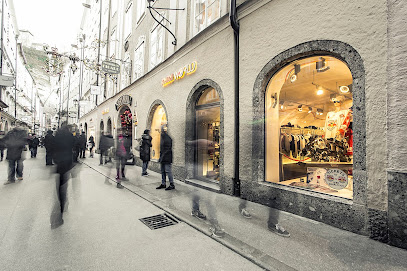
Louis Vuitton Salzbourg
Discover the pinnacle of luxury shopping at Louis Vuitton Salzburg, where opulence meets exquisite craftsmanship in a stunning boutique setting.
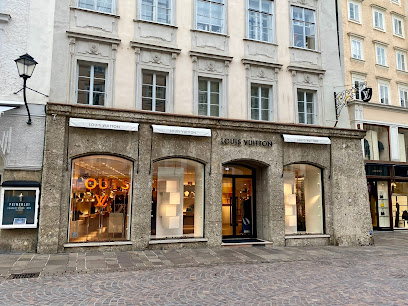
Siona
Explore Siona Boutique in Salzburg for a unique shopping experience filled with fashion and local charm, perfect for every traveler.
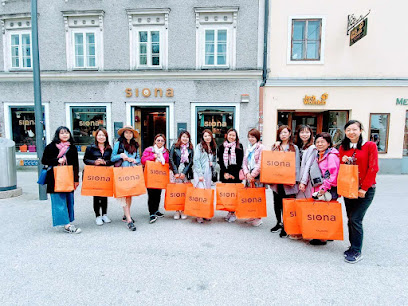
Christmas In Salzburg
Experience the enchantment of the holiday season at Christmas in Salzburg, where festive spirit and unique gifts come together in a historic setting.
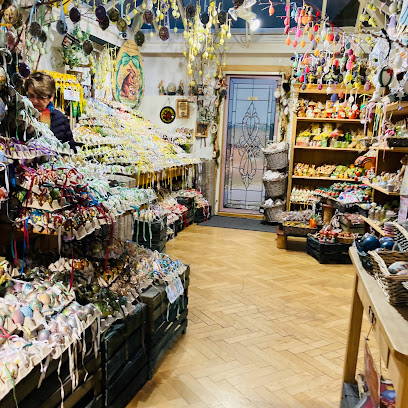
Nostalgie Salzburg
Explore Nostalgie Salzburg, where every corner holds unique antiques, rare collectibles, and unforgettable souvenirs that capture the spirit of the city.
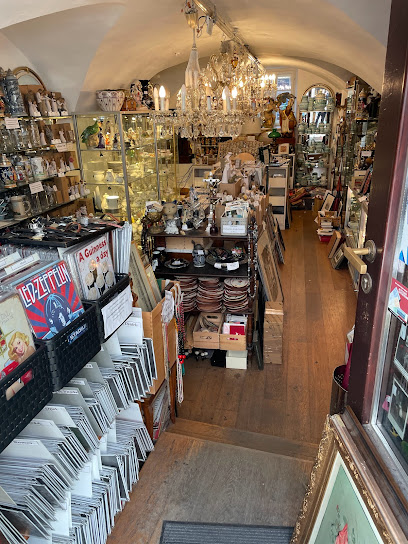
Swarovski Store Salzburg Getreidegasse
Explore the exquisite Swarovski Store in Salzburg's Getreidegasse, showcasing stunning jewelry and crystal creations in a historic setting.
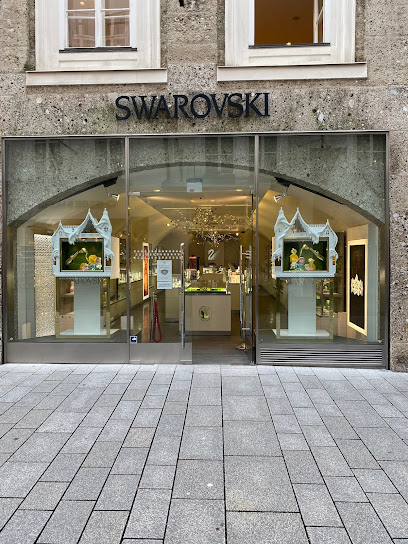
The Living Store
Discover unique gifts and home decor at The Living Store in Salzburg, where local artistry meets charming design.
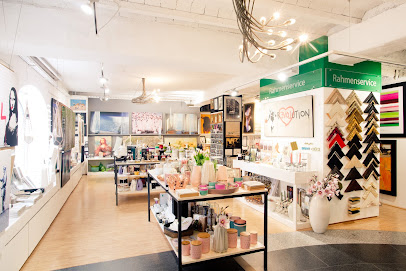
Christmas & Easter Store
Explore the enchanting Christmas & Easter Store in Salzburg, a festive wonderland filled with unique gifts and decorations celebrating holiday cheer.
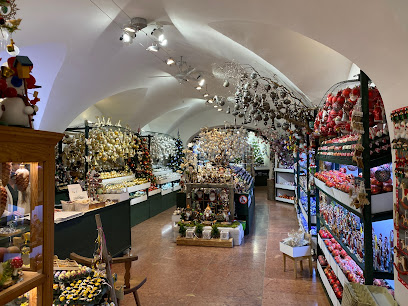
PRADA Salzburg Store
Experience luxury shopping at PRADA Salzburg, where timeless elegance meets modern style in the heart of the city.
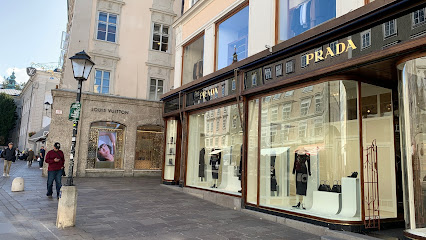
L'Occitane en Provence - Salzburg Altstadt
Discover L'Occitane en Provence in Salzburg Altstadt for an enchanting selection of luxurious beauty and skincare products inspired by the French countryside.
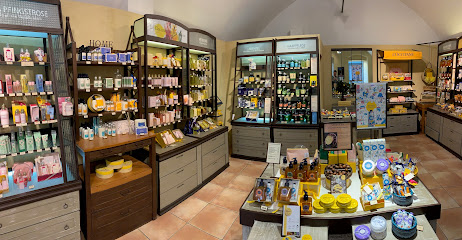
Essential bars & hidden hideouts
Monkeys cafe bar cityoasis
Discover Monkeys Cafe Bar Cityoasis, a vibrant bar and garden lounge in Salzburg offering delightful drinks and a lively atmosphere for all.
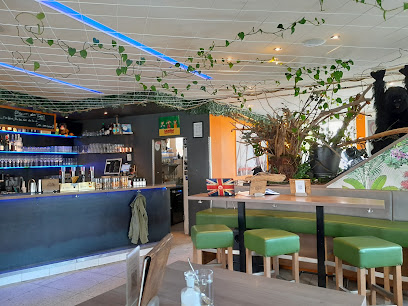
Darwin's Cafe Bar
Discover the perfect blend of cocktails, coffee, and garden tranquility at Darwin's Cafe Bar in the heart of Salzburg.
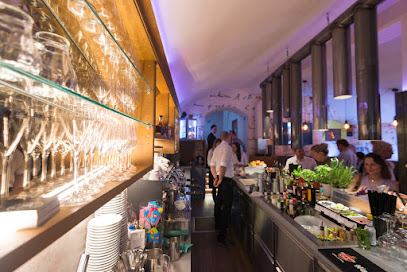
Murphy's Law Irish Pub
Discover the heart of Irish culture at Murphy's Law Irish Pub in Salzburg, where hearty dishes and a lively atmosphere await.
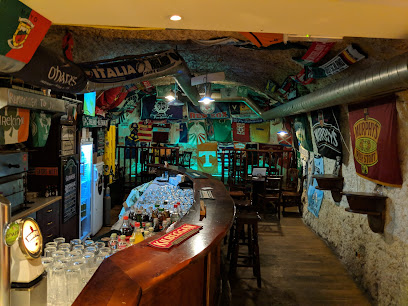
Alchimiste Belge
Discover the charm of Alchimiste Belge in Salzburg, where delightful Belgian beers meet a cozy atmosphere for an unforgettable experience.
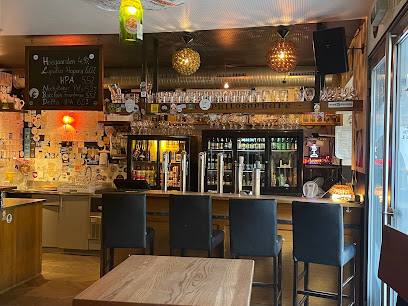
Celtic Spirit
Experience the charm of Ireland at Celtic Spirit, a lively pub in Salzburg offering authentic Irish cuisine and a warm atmosphere.
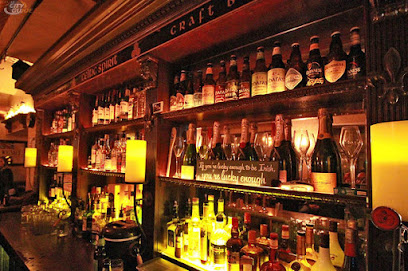
The Salzburg Whiskey Museum - Bar
Discover the rich heritage of whiskey at The Salzburg Whiskey Museum - Bar, where tradition meets tasting in a cozy setting.
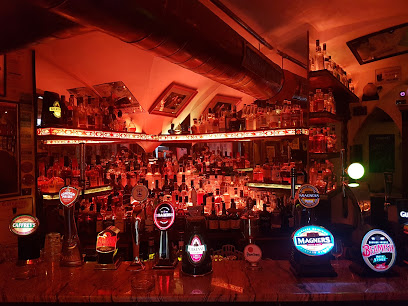
StageBar Salzburg
Experience the vibrant nightlife of Salzburg at StageBar, where live music and a diverse drink menu create unforgettable evenings.
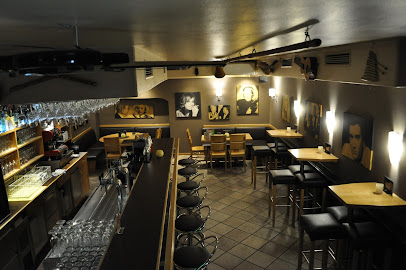
Burdock Punch&Cocktails
Discover Burdock Punch & Cocktails, Salzburg's top cocktail bar offering unique drinks and a vibrant atmosphere for an unforgettable night out.
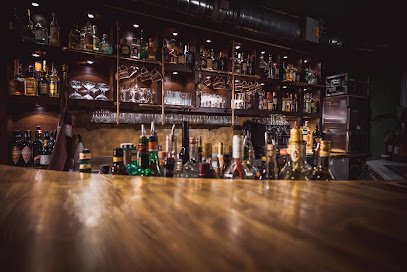
Bricks Music Bar Salzburg - Billard, Darts & Rockmusic - Livemusic
Discover the energetic atmosphere of Bricks Music Bar in Salzburg, where live rock music and friendly competition meet for an unforgettable night.
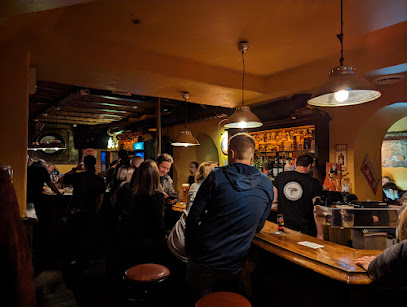
Havana - CocktailBar
Discover the essence of Salzburg nightlife at Havana Cocktail Bar, offering exquisite cocktails and a lively atmosphere for an unforgettable experience.
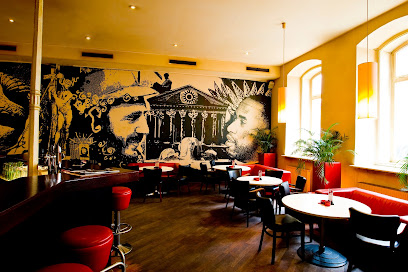
Flip
Discover Flip Cocktail Bar, where creative cocktails meet a lively atmosphere in the heart of Salzburg, making every night unforgettable.
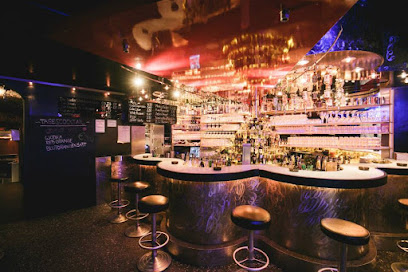
Amadeus Salzach-Insel-Bar
Experience the best of Salzburg's nightlife at Amadeus Salzach-Insel-Bar, overlooking the beautiful Salzach River with exquisite cocktails.
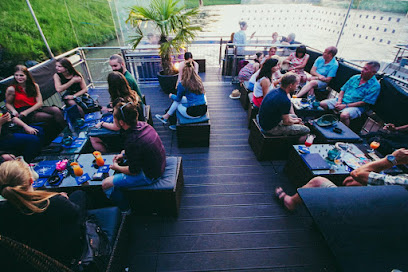
Watzmann Cultbar
Experience Salzburg's vibrant nightlife at Watzmann Cultbar, where exceptional drinks and an energetic atmosphere blend seamlessly for an unforgettable evening.
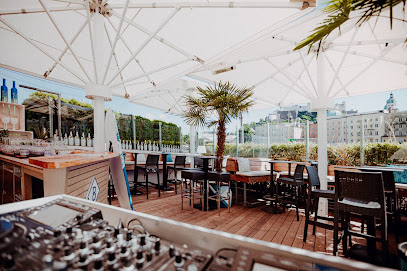
Pepe Cocktailbar
Experience the vibrant nightlife of Salzburg at Pepe Cocktailbar, where expertly crafted cocktails meet an electrifying atmosphere and Latin beats.
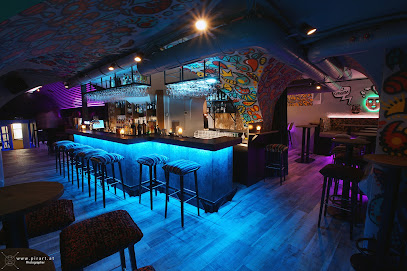
MENTOR'S BAR KULTUR
Experience the vibrant nightlife of Salzburg at Mentor's Bar Kultur, where local charm meets an extensive drink selection in a lively atmosphere.
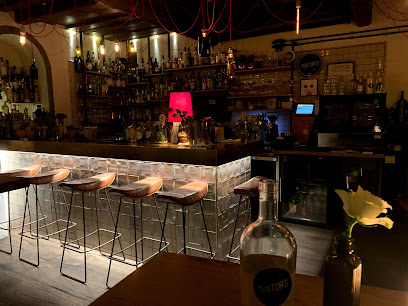
Travel experiences inspired by this city
Explore more travel diariesLocal Phrases
-
- HelloGriaß di
[Gree-ahss dee] - GoodbyeServus
[Ser-voos] - YesJa
[Yah] - NoNein
[Nine] - Please/You're welcomeBitte
[Bit-teh] - Thank youDanke
[Dahn-keh] - Excuse me/SorryEntschuldigung
[Ent-shool-dee-gung] - How are you?Wie geht's?
[Vee gates] - Fine. And you?Gut. Und dir?
[Goot. Oond deer] - Do you speak English?Sprechen Sie Englisch?
[Spreck-en zee Eng-leesh] - I don't understandIch verstehe nicht
[Ick fair-shtay-eh nickt]
- HelloGriaß di
-
- I'd like to see the menu, pleaseIch hätte gerne die Speisekarte, bitte
[Ick ha-tuh gehr-neh dee Shpy-suh-kahr-teh, bit-teh] - I don't eat meatIch esse kein Fleisch
[Ick ess-eh kine Fly-sh] - Cheers!Prost!
[Prohst] - I would like to pay, pleaseIch möchte bitte zahlen
[Ick muhsh-teh bit-teh tsah-len]
- I'd like to see the menu, pleaseIch hätte gerne die Speisekarte, bitte
-
- Help!Hilfe!
[Hil-feh] - Go away!Geh weg!
[Geh vehg] - Call the Police!Rufen Sie die Polizei!
[Roo-fen zee dee Po-li-tsy] - Call a doctor!Rufen Sie einen Arzt!
[Roo-fen zee igh-nen artsht] - I'm lostIch habe mich verirrt
[Ick hah-buh meesh fair-irt] - I'm illMir ist schlecht
[Meer ist shlecht]
- Help!Hilfe!
-
- I'd like to buy...Ich würde gerne kaufen...
[Ick vur-deh gehr-neh cow-fen] - I'm just lookingIch schaue nur
[Ick show-eh noor] - How much is it?Wie viel kostet es?
[Vee feel kos-tet es] - That's too expensiveDas ist zu teuer
[Dahs ist tsoo toy-er] - Can you lower the price?Kannst du den Preis senken?
[Kah-nst doo den prise zehn-ken]
- I'd like to buy...Ich würde gerne kaufen...
-
- What time is it?Wie spät ist es?
[Vee shpayt ist es] - It's one o'clockEs ist ein Uhr
[Es ist ighn oor] - Half past (10)Halb zehn
[Halb tsayn] - MorningMorgen
[Mor-guhn] - AfternoonNachmittag
[Nahk-mit-tahg] - EveningAbend
[Ah-bent] - YesterdayGestern
[Geh-shtern] - TodayHeute
[Hoy-teh] - TomorrowMorgen
[Mor-guhn] - 1Eins
[I-ns] - 2Zwei
[Tz-vey] - 3Drei
[Dr-eye] - 4Vier
[Feer] - 5Fünf
[Foonf] - 6Sechs
[Zeks] - 7Sieben
[Zee-ben] - 8Acht
[Ahkt] - 9Neun
[Noy-n] - 10Zehn
[Tsayn]
- What time is it?Wie spät ist es?
-
- Where's a/the...?Wo ist ein/der...?
[Voh ist iyn/der] - What's the address?Was ist die Adresse?
[Vahs ist dee Ah-dres-eh] - Can you show me (on the map)?Kannst du mir das zeigen (auf der Karte)?
[Kah-nst doo meer das tsee-gen (owf der Kar-teh)] - When's the next (bus)?Wann kommt der nächste (Bus)?
[Vahn kommt der nayk-steh (Boos)] - A ticket (to ....)Eine Fahrkarte (nach ....)
[Iy-nuh Fahr-kahr-teh (nahk)]
- Where's a/the...?Wo ist ein/der...?
History of Salzburg
-
Salzburg's history dates back to its founding as a Roman settlement called 'Iuvavum' around 15 BC. The town flourished as an important administrative center of the Roman province of Noricum. Archaeological findings, including remnants of villas, baths, and a forum, provide a glimpse into its prosperous past.
-
The modern city of Salzburg was established in the 8th century when Saint Rupert founded the abbey of St. Peter and the Nonnberg Convent. He named the city 'Salzburg' (Salt Castle) due to the salt mines in the nearby mountains, which were a major source of wealth and power for the region.
-
During the Middle Ages, Salzburg became a significant religious and commercial hub. Its archbishops wielded considerable power, both spiritually and politically. The construction of the Hohensalzburg Fortress in the 11th century served as a testament to the city's strategic importance and the might of its archbishops.
-
The 17th century marked a period of Baroque transformation under the rule of Prince-Archbishop Wolf Dietrich von Raitenau. Influenced by Italian architecture, he initiated the construction of grand churches, palaces, and public squares, including the iconic Salzburg Cathedral. This era left an indelible mark on the city's architectural landscape.
-
One of Salzburg's most famous sons, Wolfgang Amadeus Mozart, was born here in 1756. His birthplace, now a museum, attracts thousands of visitors annually. The city celebrates its musical heritage with numerous festivals and concerts, ensuring Mozart's legacy continues to thrive.
-
The Napoleonic Wars brought significant changes to Salzburg. In 1803, the archbishopric was secularized, and the city became part of the Austrian Empire. This period saw a decline in ecclesiastical power and a shift towards a more secular administration.
-
Salzburg faced challenges during World War II, including bombing raids that damaged parts of the city. Despite this, many of its historic buildings survived. After the war, Salzburg became an important center for refugees and displaced persons, reflecting the broader European post-war recovery.
-
In 1997, Salzburg's historic center was designated a UNESCO World Heritage Site. This recognition underscores the city's cultural and architectural significance, preserving its rich history for future generations. The designation has also bolstered Salzburg's status as a premier travel destination.
-
The 1965 film 'The Sound of Music' immortalized Salzburg's picturesque landscapes and historic sites. Visitors flock to see locations featured in the film, such as the Mirabell Gardens and Leopoldskron Palace, intertwining Hollywood magic with the city's real-life charm.
Salzburg Essentials
-
Salzburg is well-connected by air, rail, and road. The nearest international airport is Salzburg Airport W.A. Mozart, located just 4 kilometers from the city center. It offers flights to and from major European cities. Alternatively, you can fly into Munich Airport and take a train or bus to Salzburg, which takes about 2 hours. Salzburg's main train station, Salzburg Hauptbahnhof, is a major hub with frequent connections to Vienna, Munich, and other European cities. For those driving, Salzburg is accessible via the A1, A8, and A10 motorways.
-
Salzburg has an efficient public transportation system that includes buses, trolleybuses, and trains. The Obus trolleybus system is particularly extensive, making it easy to get around the city. Tickets can be purchased at ticket machines, online, or directly from the driver (at a higher price). Taxis are also readily available, and ride-sharing services like Uber operate in the city. For a more leisurely experience, consider renting a bicycle; Salzburg is very bike-friendly with numerous cycling paths. Car rentals are available, but parking can be challenging in the city center.
-
The official currency in Austria is the Euro (EUR). Credit and debit cards are widely accepted in hotels, restaurants, and shops. However, it is advisable to carry some cash, especially for smaller purchases or in more remote areas. ATMs are plentiful and can be found throughout the city. Ensure that your card is compatible with European ATMs, and inform your bank of your travel plans to avoid any issues with card transactions.
-
Salzburg is generally a safe city for tourists. However, like any popular tourist destination, it is wise to stay vigilant, especially in crowded areas like the Old Town and near major attractions. Pickpocketing can occur, so keep an eye on your belongings and avoid flashing valuables. Areas such as the main train station and its surroundings can be less safe at night. Stick to well-lit and populated areas, and use common sense to ensure your safety.
-
In case of emergency, dial 112 for immediate assistance. This number connects you to police, fire, and medical services. For non-emergency medical issues, you can visit one of the local hospitals or clinics. Pharmacies (Apotheken) are also available for minor health concerns and over-the-counter medications. It is recommended to carry travel insurance that covers medical emergencies. The main hospital in Salzburg is the University Hospital Salzburg, located at Müllner Hauptstraße 48.
-
Fashion: Do dress smartly, especially when dining out or attending cultural events. Casual wear is fine for sightseeing, but avoid overly revealing clothing. Religion: Do respect religious customs, especially when visiting churches. Dress modestly and remain quiet and respectful. Public Transport: Do validate your ticket before boarding and be courteous to fellow passengers. Don't eat or drink on public transport. Greetings: Do greet people with a firm handshake and direct eye contact. A polite 'Grüß Gott' (Hello) is also appreciated. Eating & Drinking: Do try local dishes and drinks, and always say 'Prost' (Cheers) when clinking glasses. Don't leave a tip on the table; instead, hand it directly to the server.
-
To experience Salzburg like a local, consider visiting the weekly markets such as the Grünmarkt at Universitätsplatz for fresh produce and local delicacies. Take a stroll along the Salzach River and enjoy a coffee at a traditional café like Café Tomaselli. Attend a classical music concert or a performance at the Salzburg Festival for an authentic cultural experience. For a unique outing, visit the Hellbrunn Palace and its trick fountains. Engaging with locals and learning a few basic German phrases can also enhance your experience.
Trending Landmark in Salzburg
Nearby Cities to Salzburg
-
Things To Do in Hallstatt
-
Things To Do in Zell am See
-
Things To Do in Kitzbühel
-
Things To Do in Bad Gastein
-
Things To Do in Linz
-
Things To Do in Munich
-
Things To Do in Innsbruck
-
Things To Do in Český Krumlov
-
Things To Do in Kranjska Gora
-
Things To Do in Klagenfurt
-
Things To Do in České Budějovice
-
Things To Do in Bled
-
Things To Do in Bohinj
-
Things To Do in Graz
-
Things To Do in Škofja Loka























